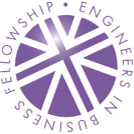Foundation Year Business Case for Engineers – 2024
Back to Competitions | This competition is designed for Foundation Year students to broaden their awareness of the future careers and opportunities that studying engineering and physics can lead to. The competition is integrated into an assessed group project of the Foundation Year that runs over a semester (11 weeks), providing an opportunity for all students to take part. Close links with the University of Surrey Student Enterprise team through interactions in the weekly workshop sessions encourages students to engage with other enterprise events and opportunities. The group project promotes skills development in the areas of team working, presentations, report writing, creative thinking, research and referencing as well as developing organisational, time management, and communication skills. |


First place: Peat Clean Solutions
Peat Clean Solutions aims to help clean up oil from the ocean after an oil spill.
Oil spills are extremely harmful to marine life and the current clean-up methods are not very efficient. This product aim to simplify the process and make it quicker and more efficient by using an origami method to make the product compact and easy to store. The aim of the product is to be easily compact, and when deployed can expand to a larger surface area, enough to surround the spill and cease its spread. There is a goal for it to be carried by all ships carrying oil as well as coast guards.
Students:
- Cate Rook – Mechanical Engineering
- Eden Cooper – Mechanical Engineering
- Gabriel Holmes – Mechanical Engineering
- Maria Ali – Mechanical Engineering
- Medha Upadhyay – Mechanical Engineering
- Severin Tretzmuller – Mechanical Engineering
- Vishnavy Sivagnanam – Mechanical Engineering
Prize awarded: £1,500

Second place: Zonapulita
ZonaPulita Solutions is attempting to revolutionise plastic collection and data-collection to help solve the world-wide issue of plastic pollution in rivers. Their ‘Rivers run free from plastic tyranny’ project will help clean up microplastics and search for and collect sunken plastics that are often overlooked.
Mesoplastics and Microplastics cause the same damage; both are hazardous to marine life and damage biomes (leading to the deterioration of pre-existing ecosystems, leading to the death of many fish). Consequently, they end up in human food and drinking water which negatively effects humans too. Zonapulita’s Stingray device is a remote-controlled plastic collector, that collects microplastics with silica gel and helps locate uncollectable mesoplastics underwater and in riverbeds so it can easily be netted out. The device has been optimised to carry out every task well through intelligent retention of captured microplastics and shape to not scare away encountered marine life. The remote controller displays what the camera on the device sees, helping with locating plastics and getting to view spots otherwise unreachable/unnoticeable.
Students:
- Ben Cluff – Mechanical Engineering
- Davide Tocco – Electrical Engineering
- Lewis Unsworth – Physics
- Matt Dunning – Physics
- Rishi Sohanpal – Physics
Prize awarded: £1,000

Third Place: Wheelsafe
Wheelsafe is a product aimed at resolving the issues faced by wheelchair users during their travel. Inspired by the apprehension many wheelchairs’ users face, regarding potential damage to their mobility devices during transit, we decided to create a product to enhance the travel experience for individuals with disabilities.
From research, the team found that many potential travellers often avoided planes due to the fear of their wheelchairs being damaged. WheelSafe presents a rectangular case with rounded corners and customisable padding to ensure a snug fit for various wheelchair sizes. Its product involves collaborating with airlines, companies specialising in different forms of transport and even the medical industry to make the world more accessible to people with disabilities.
Students:
- Adela Vasile – Civil Engineering
- Ethan Wong – Civil Engineering
- Faeezat Alli – Chemical Engineering
- Hannah Babirye – Civil Engineering
- John Emesi – Chemical Engineering
- Shanaya Pathmanathan – Civil Engineering
- Tairat Ogunbadejo – Chemical Engineering
Prize awarded: £500
Positive feedback
The EIB competition provides an extra element to enhance the motivation and competitiveness of our Engineering and Physical Sciences Foundation Year students at the University of Surrey. The competition is integrated into the curriculum and therefore gives all our students the opportunity to take part, not restricting participation to those who are able to give time to extra-curricular activities. The endorsement afforded by the competition highlights to the students that the skills they are developing in their studies are highly valuable in the wider world and opens their thinking to future possibilities. Thank you for your support.
Dr Carol Spencely
Senior Lecturer
University of Surrey
